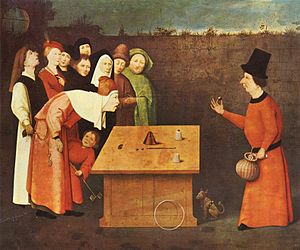User:Lucia Dossin
Reading Writing Research Methodologies
Notes on Reading
- Discipline, Control and the current state of Internet - notes
- Discipline, Control and the current state of Internet - common notes (group)
- Protocol – Introduction Chapter (Alexander Galloway)
- Empire - Chapter 1.2 Biopolitical Production (Antonio Negri and Michael Hardt)
Writing
- Work description in 300 words
- On Discipline Society / Society of Control
- Observations on Being an User
- Zizek / Martens / Oppenheimer
- Interview
- Essay on Method
Prototyping Networked Media
Assignments
- Assignment #1 Python & Turtle
- Assignment #3 Python Generated Sound Files - RAW DATA
- Assignment #3 Python Generated Image Seque3nce - RAW DATA
- Assignment #4 Working with text ...................
- Assignment #5 Roll Your Own Google
Modules
Prototyping Lens Based
Assignments
- Editing Scheme ...................
- Kinect
Thematic Seminars
Politics of Craft
Sound Narrative
Archive
Self-directed Research
Cookbook
Links
EMO entry
The Magician
The magician is a professional hired to entertain by performing tricks. One of the specific feature of this profession is the commitment to secrecy. An illusionist that reveals tricks can be expelled from the group. [Steve: How is a magician a media object = what do they mediate?]
A magician is someone who holds the power over the unkonwn. He (or she, even though there are much more male magicians than female ones) can control things that 'normal' people can't and is able to do things that we know are impossible. (S)He basically applies knowledge about Natural Sciences, Psychology - and more recently digital technologies - for entertainment purposes. But what exactly is entertaining about that?
One possibility is that the amusement comes from our attempt to find out the trick secret. But I think that's true to just a parcel of us: most people would actually be upset if they could unmask magicians' tricks. The fun lies in being cheated - by the magician. That does not mean to say that being cheated is always fun. But it's generally amusing to be cheated by a magician.
That's what I consider interesting: the magician is someone who has our authorization to cheat us for entertainment. The cheating implies a specific setting and a range of situations and gestures and it usually does not damage nor hurt anyone involved in the performance or in the audience. It's safe.
[... TBC ...]
History
The first reportedly known magician, Dedi, lived in ancient Egypt (2700BC) and was supposedly able to resurrect animals after having their heads cut.
Since the beginning, magic has been associated with supernatural powers. In the Middle Ages, it has been associated with witchcraft. According to the Magicpedia, in the Renaissance a few important books were published on the subject.
'Natural Magic' (Magia natvralis libri viginti, written by John Baptista Porta in 1558) was a book on Natural Sciences and contained information on 'geology, optics, medicines, poisons, cooking, magnets and its properties, fires, gunpowders, invisible and clandestine writing'. (Wikipedia)
'The Discoverie of Witchcraft' (written in 1584 by Reginald Scot) not only disclosed trick secrets but also presented a strong position against the Catholic church for persecuting people and accusing them of being witches.
One of the most ancient performances is the 'Cup and Balls'. It has been performed for the last 2000 years. It is still considered such a relevant trick that many consider that mastering it is essential for someone to be called a magician.
Penn and Teller cups and balls
Abracadabra
The etymology of this word is uncertain but it may derive from Aramaic. Abracadabra is used as a magic word. The first mention of it was in a Medical book from century 3AD, where the word was displayed in the form of a triangle and was used as an amulet against malaria.
A - B - R - A - C - A - D - A - B - R - A
A - B - R - A - C - A - D - A - B - R
A - B - R - A - C - A - D - A - B
A - B - R - A - C - A - D - A
A - B - R - A - C - A - D
A - B - R - A - C - A
A - B - R - A - C
A - B - R - A
A - B - R
A - B
A
There are also connections between the word and the ability to write. It could have been used as a way to remember the alphabet, as 'it becomes more pronounceable and easier to remember by adding repetitive vowel "a" or "ra" sounds where there are none and adding an alliteration "bra" at the end'. (Wikipedia)
Magic Organizations
Worldwide there are many organizations that aim to keep the art of magic alive – and secret. The oldest one is The Society of American Magicians, founded in New York in 1902. A few years later (1905), the Magic Circle is founded in London. Both associations are still active. For a more complete list of this kind of organizations, check http://en.wikipedia.org/wiki/Category:Magic_organizations.
. art . open source . contemporary magicians

